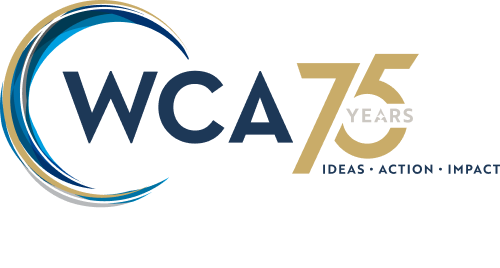This week in “What’s New in Digital Equity” — our weekly look at government digital equity and broadband news — we have a number of interesting items, which you can jump to with the links below:
- California Signs Bill for Digital Equity Bill of Rights, Other Broadband Advances
- NTIA Calls on FCC for Strong Rules to Prevent Digital Discrimination
- FCC Sets Dates for Providers to Display Broadband Consumer Labels
- Bicameral Bill Introduced to Increase Access to Internet for Low-Income Americans
- Office of Broadband Development Announces Support for Statewide ACP Initiative
- Westchester County Launches Digital Literacy and Access Initiative
CALIFORNIA SIGNS BILL FOR DIGITAL EQUITY BILL OF RIGHTS, OTHER BROADBAND ADVANCES
California Gov. Gavin Newsom signed several pieces of legislation this week related to digital equity.
First, he signed AB 414, known as the Digital Equity Bill of Rights. The legislation prohibits fixed and mobile Internet service providers from offering services other than broadband Internet access delivered over the same last-mile connection as the broadband Internet access service.
The California Emerging Technology Fund (CETF), which sponsored the Digital Equity Bill of Rights, celebrated this legislative milestone, stating that the bill creates a framework of commitment to digital equity for all Californians.
“This landmark legislation assures all Californians that the vision and intent of the bill is fulfilled so everyone can have digital access that provides educational, economic, public safety and democratic benefits for all California residents,” said Sunne Wright McPeak, CETF president and CEO in a press release.
Newsom also signed SB 387, which allows the state to lease property to broadband service providers for new infrastructure. Previously existing law limited the Department of General Services’ ability to execute such leases of state-owned property.
The California governor also signed AB 286, which is related to the state’s broadband mapping efforts.
Existing law requires the Public Utilities Commission to maintain and update a statewide and publicly accessible map to show broadband service availability. This law requires the map to identify broadband service providers offering service at each address in the state and to identify the maximum speed of service offered at that location.
The law also requires the implementation of features of the map that will enable increased self-reporting of data, such as letting users submit a verified speed test at their location.
NTIA CALLS ON FCC FOR STRONG RULES TO PREVENT DIGITAL DISCRIMINATION
This week, the Department of Commerce’s National Telecommunications and Information Administration (NTIA) called on the Federal Communications Commission (FCC) to adopt strong rules against digital discrimination.
The agency’s filing urged the FCC to define digital discrimination in a way that includes both disparate treatment and disparate impact on protected groups, thereby including both intentional and unintentional discrimination. It also clarifies that actions taken in compliance with the Broadband Equity, Access and Deployment (BEAD) Program should be considered lawful.
The filing details that while disparities can result from intentional discriminatory treatment, they may more commonly result from business decisions made without discriminatory intent. Nevertheless, the disparate impact exists.
FCC SETS DATES FOR PROVIDERS TO DISPLAY BROADBAND CONSUMER LABELS
In other news related to the Federal Communications Commission (FCC), dates have been announced for enacting the requirement for broadband providers to display broadband consumer labels, with most required to do so by April 10, 2024. Smaller providers have an extended deadline of Oct. 10, 2024.
“Consumers will finally get information they can use to comparison shop, avoid junk fees and make informed choices about which high-speed Internet service is the best fit for their needs and budget,” said FCC Chairwoman Jessica Rosenworcel in the announcement.
The FCC adopted the Broadband Label Order in 2022 as required by the Infrastructure Investment and Jobs Act. The consumer labels will disclose important information about prices, data allowances and broadband speeds. In addition, they will help consumers access information about the Affordable Connectivity Program.
BICAMERAL BILL INTRODUCED TO INCREASE ACCESS TO INTERNET FOR LOW-INCOME AMERICANS
In other policy news, a bicameral bill has been introduced by U.S. Sen. Alex Padilla, Senate Majority Whip Dick Durbin and Rep. Robin Kelly. The bill, Promoting Access to Broadband Act, would increase access to Internet and telephone services for low-income Americans in both urban and rural areas.
Essentially, the bill would help states increase awareness and enrollment in federal subsidy programs like the Federal Communications Commission’s Lifeline program and the Affordable Connectivity Program (ACP). As Padilla noted in the announcement, programs exist that can help address Internet access disparities, but what this legislation would do is help bring together states and nonprofit organizations to help get more Americans enrolled in such programs.
Although the ACP is slated to run out of funding in 2024 — unless action is taken to extend it — government agencies are continually trying to boost enrollment. Currently, fewer than half of eligible households are enrolled in the program.
OFFICE OF BROADBAND DEVELOPMENT ANNOUNCES SUPPORT FOR STATEWIDE ACP INITIATIVE
At the state level, the Missouri Office of Broadband Development has announced support for Missouri ACP Act Now, an initiative led by EducationSuperHighway to increase enrollment in the Affordable Connectivity Program. The initiative involves a coalition of partner cities, counties, community-based organizations and other trusted institutions.
Through this initiative, partners will have access to resources — such as social media campaigns, email marketing templates and a pre-enrollment tool — to help overcome digital equity barriers.
Similar statewide campaigns have been launched across the nation, in states including Colorado, Michigan and Rhode Island.
“Alongside our historic investments made in broadband infrastructure, this program is helping achieve a more connected future,” said Gov. Mike Parson in the announcement.
WESTHESTER COUNTY LAUNCHES DIGITAL LITERACY AND ACCESS INITIATIVE
At the local level, Westchester County, N.Y., has launched a new initiative to increase access to affordable Internet and education. Launched by the county’s Office of Economic Development, the program will leverage partnerships with the STEM Alliance, the Westchester County Association (WCA) and the Westchester Library System.
“A digitally skilled workforce is a necessary foundation for a thriving economy,” said Westchester County Office of Economic Development Director Bridget Gibbons in the announcement. “We are laser-focused on ensuring Westchester is a place where everyone has the opportunity to find success and that no one is left behind.”
Connect Westchester leverages federal funding to help boost equitable access to broadband and digital literacy for residents. This initiative also builds on previous digital equity work in the region, such as the Y-Zone.


